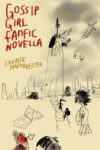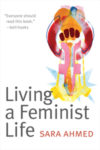
Photograph by Joseph Mohan. See more of Joseph’s work here.
There’s a game called The Game of Life. You might have played it. It’s a board game, where you spin a wheel to get numbers to determine how many steps you’ll take towards your ultimate destination, which is the suburbs. It’s structured like this: You start off on your journey and accumulate children and money. You get to make a few decisions along the way. Going to college can pay off but only a little bit, and sometimes not at all. You draw cards that determine the basic building blocks of your existence, that is your profession, dwelling, and income. There’s a little bit of chance and a little bit of choice involved, and ultimately, it’s not a grossly inaccurate approximation of actual life. It does, though, take out a lot of the joy and pain and transform all of the stuff of living into fairly rote and functional stepping stones towards a final goal (maximum money), which is ironic, since it’s designed as a leisure activity.
Of course, if entertainment is escapism, I guess there’s no board game that lets you step out of yourself quite so effectively as one that allows you to play all of life from beginning to end in just about an hour. The mundanity and unreality of the Game of Life combine to make it supremely diverting. And if you have yet to have a profession, or a marriage, or a college education, or insurance deeds or stock or property or offspring, then the game holds the thrill of a palm reading or fortune telling — an opportunity to imagine how it might all turn out.
The Game of Life is, according to Wikipedia, “America’s first popular parlor game,” and was the very first board game created by Mr. Milton Bradley in 1860. In fact the creation of the official Game of Life seems to sync up quite neatly with the completion of the Industrial Revolution and the advent of Modernism in art and culture. Without reading too much into this circumstantial coalescence of events, it makes sense that at the end of the 19th century modern structures of life, labor, and happiness would begin to take on some new predicted and desired contours, a distinct narrative form, that then becomes quite easy to miniaturize and abstract into a series of steps on a board game. Life becomes a project to be worked on and, with the achievement of certain milestones, completed.
In 1962, the New Yorker published New Zealander Janet Frame’s short story “Prizes,” which begins “Life is hell, but at least there are prizes, or so one thought.” In her story, Frame elaborates on questions of accomplishment and satisfaction and how a cycle of achievement accumulation might propel one forward — but only for a time. She enumerates her childhood accolades, her frequent presence in the children’s newspaper, her superlative ability and constant recognition in all spheres of academic and extracurricular life. But then she grows up and the prizes, and the joy they brought, begin to haunt with the emptiness of their promise. What does it mean to collect those little Life tiles when there’s no final reckoning in the suburbs to separate the winners from the losers?
In the 1960s, if you played Milton Bradley’s already century-old game, you could do it right and end up on Millionaire Acres as a “Millionaire Tycoon,” or do it wrong and end up on the “Poor Farm.” (These days, we don’t like to confront class division in such stark form, so the Poor Farm has turned into “Countryside Estates.”) The Game of Life reaches its conclusion at the apex of property ownership and capital accumulation and family structure solidification. It doesn’t take you to the part where you get old and your children grow up and don’t want to talk to you anymore and your wife takes a lover and moves to Europe and your years of corrupt accounting come crashing down on your head and your gout flare-ups come with increasing frequency and take an undeniable toll on the state of your heart. And the wife, and the kids, and the lost money, and the lost respect, all that takes a toll on your heart too. And in the end, the thing that happens, is you die. No picture of perfect familial stability will ever stay static. Ultimately the prizes, whether they are in the form of normative life structures or county fair blue ribbons or just one hit single, can be a cruel comfort.
In “Prizes,” the narrator speaks to us from a mysterious “pit,” which might be death, or might be adulthood, or might just be the existential despair that comes when all of the threads pulling one forward have failed to continue to offer promise. The story ends in the pit with the absence of prizes. Frame writes, “And now I lie in the pit, finally arranged, faded, robbed of all prizes, while still under every human sky the crows wheel and swoop, dividing, dividing the spoils of the dead.”
This all begins to look very much like what social theorist Lauren Berlant terms “cruel optimism,” a set of relations both deeply entrenched in human existence, and particular to our current social, political and economic moment. In her book Cruel Optimism, Lauren Berlant explores ideas of attachment and the ways that various images and representations of the good life take a toll on our well-being. Cruel optimism refers to a “. . . relation of attachment to compromised conditions of possibility whose realization is discovered either to be impossible, sheer fantasy, or too possible, and toxic.”
She elaborates to explain that the cruelty comes in that “the subjects who have x in their lives might not well endure the loss of their object/scene of desire, even though its presence threatens their being.” Those objects of desire are exactly what gives individuals the “sense of what it means to keep on living on and to look forward to being in the world.”
Miranda July’s short story “This Person,” clearly influenced by Frame’s “Prizes” (which she chose to read for the New Yorker’s fiction podcast), functions as a parable to illustrate how much we need images of desired futures to keep on living on. July tells of a person waking up one day to find that all her struggles are over. Her to do lists have all been checked off and she has finished everything. She listens to a message on her voicemail: “You have passed the test. It was all just a test, we were only kidding, real life is so much better than that.” She goes out to find everyone she’s ever known all together in a park, having a picnic, and “Everyone is smiling.”
She lingers for a few moments and then, thoroughly unsettled, goes home and checks her messages, but there are none, “probably because everyone is at the picnic.” While she feels she ought to be at the place where everyone she’s ever known is celebrating her success at completing all of life’s trials, she can’t go back. Instead she takes a bath and goes to bed knowing, “she has ruined her one chance to be loved by everyone.” And with that loss and the pain that it brings, she feels alive again: “the weight of this tragedy… is a comforting weight, almost human in heft.”
In The Promise of Happiness, Sara Ahmed writes that the expectation of happiness provides a “specific image of the future.” The fact that these specific images are not necessarily realized when a particular goal or object is accessed, is a hard reality to accept. However, accepting it might be a way of orienting oneself in time and in life so as to smudge out the lines around that squiggly board game path. Ahmed writes, “We can consider how we are affected by the arrival of something in which we have placed our hopes. The boat that arrives might be empty, or it might be full. We do not know in advance of its arrival whether it is empty or full.” She suggests, however, that the real burden is the necessity to find happiness in the arrival of those vessels, and argues that, “The freedom to be happy restricts human freedom if you are not free to be not happy.” If we could feel better about feeling more different ways when our ships come in, we could have different kinds of ships, different kinds of lives, and perhaps less cruel ones.
Back in New Zealand, a half century or so before Frame published “Prizes,” and another half century after Milton Bradley invented the Game of Life, Katherine Mansfield wrote a short story called “Bliss” about an afternoon in the life of a woman, 30-year-old Bertha Young, whose sense of wonder at the world casts her whole life in such a fantastically rosy hue she can barely contain her joy enough to go about her day. Mansfield writes, “Although Bertha Young was thirty, she still had moments like this when she wanted to run instead of walk, to take dancing steps on and off the pavement… to stand still and laugh at — nothing — at nothing, simply.” Bertha wonders, “Why be given a body if you have to keep it shut up in a case like a rare, rare fiddle?”
Her life is the picture of perfection, something which she tells herself repeatedly, like a mantra, as though to remind herself of all the many reasonable reasons she has for living with such joy in her heart:
“Really — really — she had everything. She was young. Harry and she were as much in love as ever, and they got on together splendidly and were really good pals. She had an adorable baby. They didn’t have to worry about money. They had this absolutely satisfactory house and garden. And friends…”
As the story goes on, Bertha’s affective overflow goes in unexpected directions, in a way that even she barely understands. As she walks arm in arm with her friend, her perfectly proscribed bliss begins to hint at something that might not fit into her life so well. She wonders, “What was there in the touch of that cool arm that could fan — fan — start blazing — blazing — the fire of bliss that Bertha did not know what to do with?”
When she comes to understand at the end of the story that her beloved friend and her husband are likely having an affair, she’s only momentarily stopped in her tracks. After a moment of reeling, paused in time, she looks out her window at a pear tree, which earlier in the evening she had seen as a representation of the fullness of her own life, “with its wide open blossoms.” Following her unsettling revelation, she thinks “But the pear tree was as lovely as ever and as full of flower and as still.”
The moment recalls Ahmed’s sometimes-empty ships, the ships in which we have placed our hopes. Bertha’s ship seems so full, exactly as she might have imagined it, but at the same time, her joy doesn’t quite fit into the box that birthed it. She can barely contain her feelings within her body, her social world, or her marriage. When she finds that the structure of this life is not as solid as she once thought it was, she’s not wracked by despair, only befuddled. Her joy doesn’t disappear because it was already going in so many different directions.
When Milton Bradley first created the Game of Life, it was called the “Checkered Game of Life,” because it was played on a checkerboard. The name recalls the phrase “a checkered past,” a life narrative full of dark corners and missteps. Intervening years have unsurprisingly smoothed over the potential for any darkness in this children’s game. But sometimes holding within oneself an understanding of the potential for loss, and feeling that loss when it comes — even if it’s just the loss of a promised future — can be a part of the game that makes it worth playing. For July’s nameless woman, sinking into her bed under the weight of the heaviest disappointment, for Bertha revisiting her pear tree after understanding that her marriage is compromised, there is freedom precisely in unhappiness — a freedom that Frame’s pained narrator, so pathologically entwined in her prizes, can’t quite access. As Ahmed writes, “Unhappiness becomes a freedom when the necessity of happiness is masked as freedom.” Why be given a body if you have to keep it shut up in a case like a rare, rare fiddle?
There’s a very melodramatic song that Freddie Mercury sings with Queen that goes, “Just one year of love is better than a lifetime alone,” and I’ve always wondered whether that might really be true. Freddie keeps singing, wailing really, “No one ever told me that love would hurt so much, Oooh yes it hurts. And pain is so close to pleasure.” It’s almost human in heft.
Helen Stuhr-Rommereim edits the blog at Full Stop. She writes a monthly column discussing literature written by people from outside the USA.
This post may contain affiliate links.







